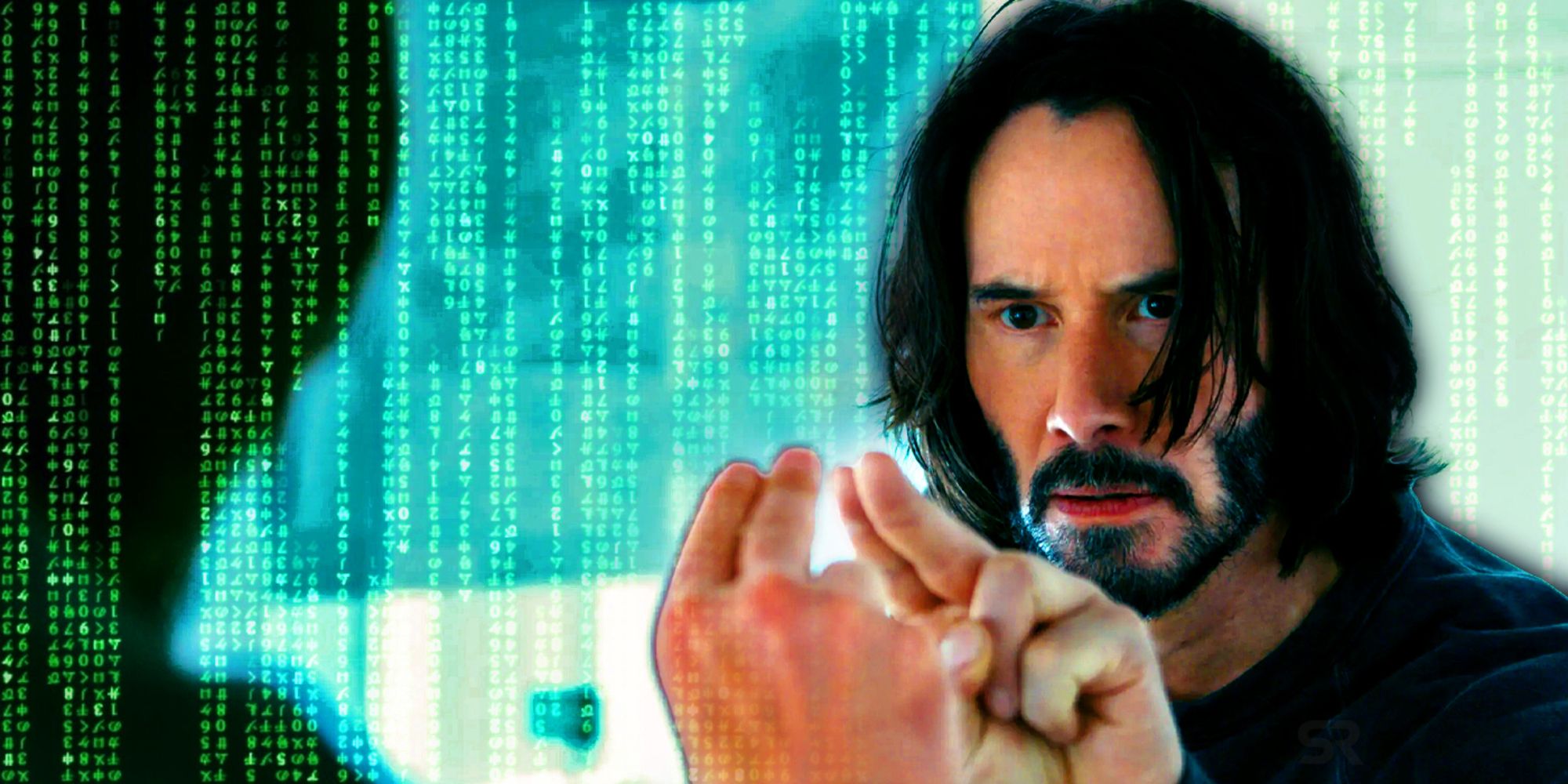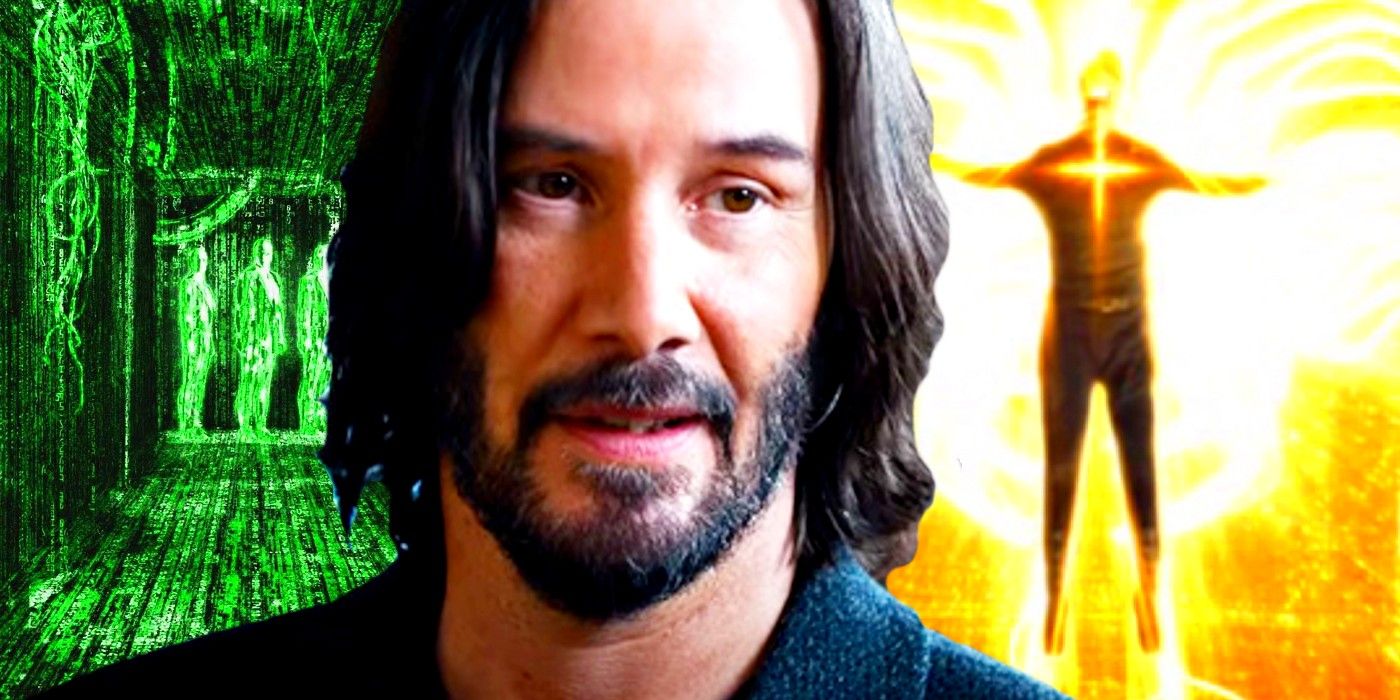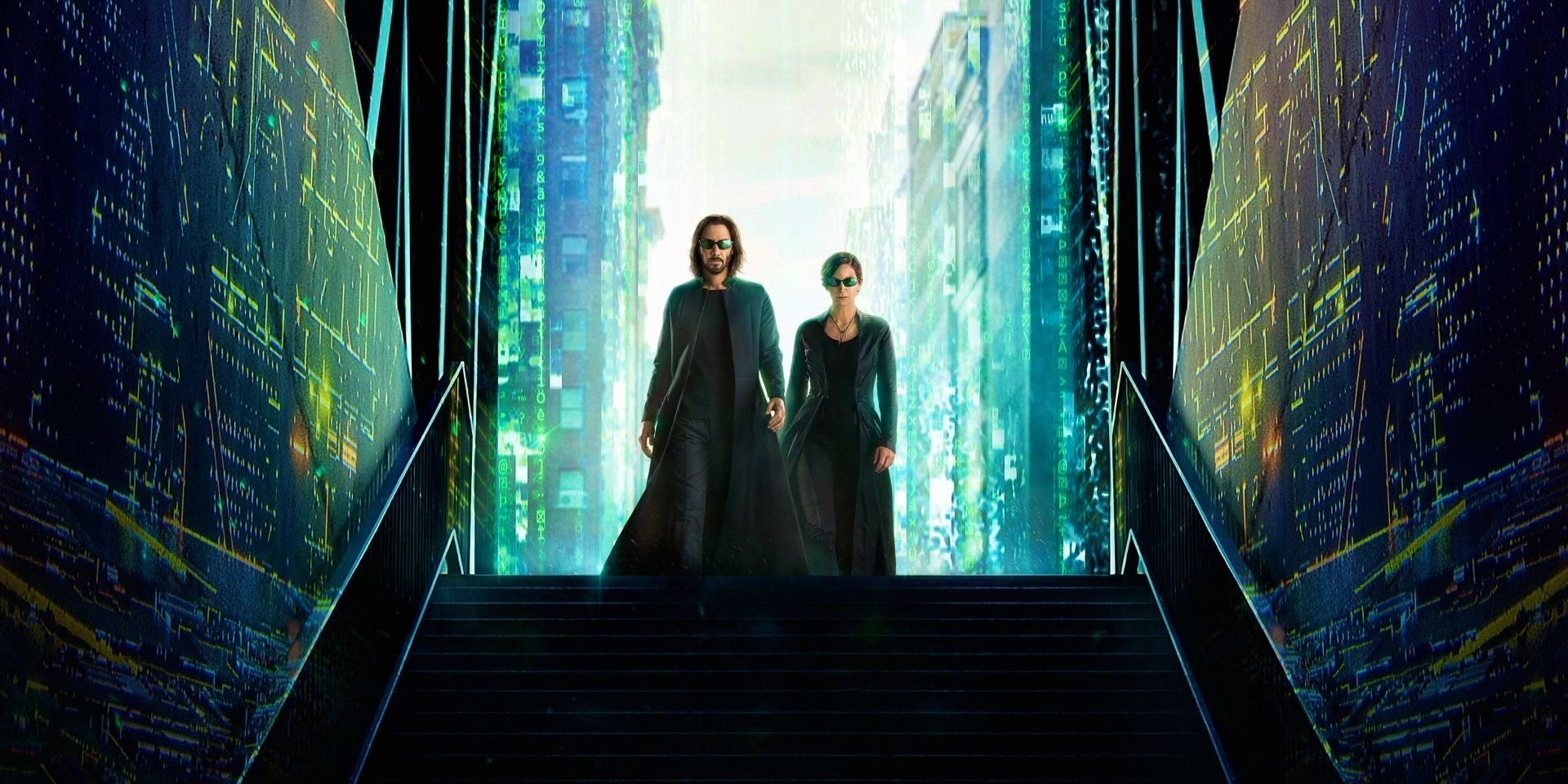Despite offering the highly anticipated return to a franchise with clever philosophical themes, The Matrix Resurrections was ultimately too meta for its own good. With almost two decades between it and The Matrix Trilogy by the time of its release in 2021, Resurrections had the chance to explore new aspects of the thought-provoking sci-fi world created by the Wachowski sisters, as well as determine what happened to the peace between the humans and machines, but it became mired in the conscious referencing of its own subject matter. Rather than focus on the sacrifices made by Neo, Trinity, and Morpheus in the previous films, it struggled to find its direction and settled on being a movie about a movie.
Lana Wachowski returning as writer and director, as well as most of the principal cast, seemed to indicate that it would faithfully and respectfully continue where The Matrix Revolutions left off. Reboots, remakes, and revivals of franchises and IPs had grown in popularity, but rumors circulated that Resurrections was just another soulless cash grab from Warner Bros. rather than a sequel with the same potential for lofty analysis inherent to the rest of the films. What debuted in 2021 was almost sure to disappoint in some way, but the parody that premiered was more focused on poking fun at itself and its innate expectations than developing its story.
Resurrections Is The Most Obviously Meta Matrix Movie
Of all the Matrix films, Resurrections is the most meta thanks to its near-constant references to itself and sequels in general. From the beginning, when Thomas Anderson works for a video game developer and thinks the events of the previous films have been dreams, there's a conscious sense of irony as he uses them to make the world's most popular games (with literal footage of the Matrix movies spliced in). Resurrections proved a lot of Matrix theories wrong as its focus remained on satire.
Programmers involved with the games even throw out suggestions for sequels to his work that feel like fan expectations of what the film itself would be, or should be, about. Neo sacrificed himself so that the Machines could use him to take out the Smith-controlled Matrix, and he simply becomes plugged into the seventh iteration of the Matrix. It's the inevitable narrative of a cyclical series of films that are destined to repeat over and over again. There's even a character like The Analyst, prescribing Neo Blue Pills, forcing him to accept the joke his life's become obsessing over his own story in a video game.
The Matrix 4's Meta Jokes Contradict Itself
While some of the meta gags can certainly be apropos, many of them castigate generic sequels, and Matrix 4 doesn't differentiate itself enough from the kind of bland sequel that its humor is targeting. Even its bullet-time twist reveals another meta criticism when The Analyst uses "the power that defined you to control you," as though he's self-aware of all the irony surrounding the superpowers that made Neo so fun to watch defeating villains like him. This creates a tone that is either hypocritical or intentionally serves as one giant joke on the audience (with a post-credit scene to support the latter).
Resurrections blatantly contradicts itself, stemming from a point made in its own narrative; the film would exist whether the Wachowskis were involved or not. While it can be conceded that any of their involvement is a bonus as the originators of the material, the movie does much to dispel it with the quality of its content, its overall sense of purpose, and the message that it sends with its themes. Its narrative changes and retcons the original Matrix movies while standing as a self-referential dismissal of fan and studio expectations.
Perhaps most egregious of all, the meta-humor proves that while Resurrections is making fun of sequels that retread old ideas and repackage them for nostalgic masses, it's also delivering (and banking on) as much fan service as possible. Lana Wachowski clearly acknowledges that jumping on any nostalgia bandwagon can produce middling results, but making her film the sacrificial lamb reduces the meaning of her work. Including commentary about how meta it is doesn't hide the fact that Resurrections is still a reboot of The Matrix and is buoyed by the very nostalgia it lampoons.
The Matrix 4 Needed To Pick A Direction & Stick To It
Matrix 4 wrestled with an identity crisis all the way through as it struggled to determine what kind of movie it wanted to be; a meta-commentary on the nature of sequels and the movie business itself, or a proper sequel to the franchise. Resurrections killed better sequel ideas in favor of something intentionally hackneyed, the inevitable result of the Wachowski sisters being hounded to do a sequel to the original trilogy for decades. And the result was ultimately an infusion of what should have been a creatively dynamic narrative with meta-commentary becoming distracting rather than enlightening as its predecessors were.
Using a sequel as highly anticipated as Resurrections to criticize the unoriginality of sequels had an adverse effect on the franchise as a whole. The choices with character development, storyline, and themes altered what should happen for the sake of being subversive, and only ended up hurting the reputation of a series of films known specifically for their individuality and non-conformism. As a result, things like the long-awaited reunion between characters like Neo, Trinity, Morpheus, Agent Smith, and others were overshadowed by the movie reveling in its own commentary and getting The Matrix so wrong.
Legacy characters seemed like visitors to their own franchise, rather than the main facilitators of its canon, which wasn't helped by the fact that they were still the primary protagonists at the end, rather than passing it off to new young heroes that might carry it forward. Themes at the heart of the franchise like free will and choice became anathema in the context of so much meta-humor, and afterthoughts in favor of defying expectations and saying something witty about the current state of Hollywood. With the direction The Matrix Resurrections ultimately went, it leaned into the Matrix narrative just enough to appeal to fans and then pulled the rug out from under them.




